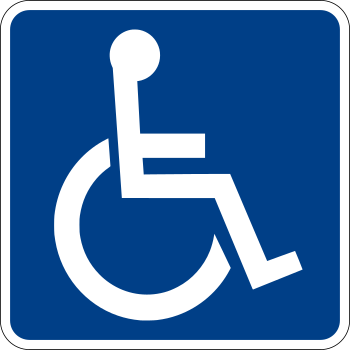 |
| This is the internationally recognized symbol for accessibility (Photo credit: Wikipedia) |
The fundamental right to parent without interference is protected by the U.S. Constitution and balanced by the judicially recognized power of the state to interfere to protect the well-being of its children. Factors used in both dependency court and family court proceedings to determine whether children need to become wards of the state and to determine which parent is the more competent custodian may be reasonable. Nonetheless, these rules have not been objectively or justly applied to parents with disabilities.
Toolkit
Disabled Parents Toolkit (PDF)
Report
Protecting the Rights of Parents and Prospective Parents with Disabilities: Technical Assistance for State and Local Child Welfare Agencies and Courts underTitle II of the Americans with Disabilities Act and Section 504 of the Rehabilitation Act
The United States Department of Health and Human Services (HHS) and the United States Department of Justice (DOJ) are issuing this technical assistance to assist state and local child welfare agencies and courts to ensure that the welfare of children and families is protected in a manner that also protects the civil rights of parents and prospective parents1 with disabilities. This guidance provides an overview of the issues and application of civil rights laws, answers to specific questions and implementation examples for child welfare agencies and courts, and resources to consult for additional information.
Section 504 of the Rehabilitation Act of 1973 (Section 504)2 and Title II of the Americans with Disabilities Act of 1990 (ADA)3 protect parents and prospective parents with disabilities from unlawful discrimination in the administration of child welfare programs, activities, and services.4 At the same time, child welfare agencies and courts have the responsibility to protect children from abuse and neglect. The goals of child welfare and disability non-discrimination are mutually attainable and complementary. For example, ensuring that parents and prospective parents with disabilities have equal access to parenting opportunities increases the opportunities for children to be placed in safe and caring homes.
Read more
 U.S. Department of Justice
U.S. Department of JusticeCivil Rights Division
Disability Rights Section
Remain an Equal Parent to your Child


